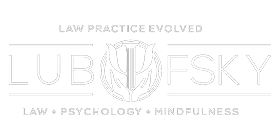Most people seeking mediation services for the first time are doing so in search of less contentious, more cost-effective solutions to conflict. The threshold factors in assessing whether a particular situation is ripe for mediation are the readiness, willingness, and ability of all parties directly involved in the conflict to open and listen to divergent […]
Category: Mediation
Much of suffering can be tied to some deeply conditioned notion that we have some fundamental baseline of “happiness.” When some event, stimuli, or phenomenon is interpreted as “bad,” “unpleasant,” or “painful,” we almost instinctively engage strategies to obtain something we interpret as “good,” “pleasant,” or “pleasurable,” to return our condition to this baseline. Such […]
The mind seems to incessantly scan the environment for problems to solve. This active intellectual engagement with our environment likely served to ensure our survival as a species over millions of years as immediate physical dangers routinely confronted us in more primitive times. The mind seeks problems to solve largely within the parameters of cause […]
Defensive and aggressive reactions to conflict most often arise because of an inability to be heard and understood. At the heart of most conflict lies some core issue that, if recognized, acknowledged, and explored, would provide the seed for peaceful, optimal resolution, truly in the best interests of the parties and more broad societal context […]
Within a wide swath of civil litigation can be found a common denominator: The tendency of people in contemporary American society to sidestep responsibility for their own happiness and well-being, instead looking toward external factors to blame for undesirable outcomes or consequences. Almost by definition, our predominant adversarial model of civil litigation encourages, cultivates, and solidifies […]
In conducting more than two dozen mediation sessions in Alameda County Superior Court, what is most glaringly apparent is the extent to which mediation participants enter mediation with all-defined, hardened positions. Moreover, these individuals almost always are convinced that their interpretations of some event or events that have taken place in the past are the […]
Where holistic law practice has at its core wisdom borne from a grounded sense of being, it is only within the mediation forum that individuals are afforded the freedom and flexibility to access this wisdom and have this wisdom guide participants toward optimal dispute resolution. In contrast, formal litigation imposes strict rules (e.g., rules of […]
